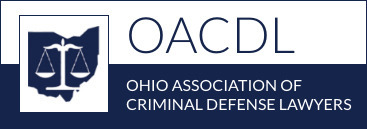Complete Story
Opioid Epidemic Prosecutions: What's Insufficient Evidence of Corrupting Another with Drugs
By: April Campbell
Long gone are the days when drug users are prosecuted only as users. It is not just about drug possession or drug trafficking anymore. Now, prosecutors indict users for the friends who party with them. Samuel Haynes, a heroin user indicted for corrupting another with drugs because he drove two friends to his dealer, is just one example among many dealing with the aftermath of this prosecutorial bent. State v. Haynes, 2020-Ohio-1049 (Mar. 20 2020).
This prosecutorial trend has emerged thanks to the opioid epidemic. Responding to the crushing number of overdoses that spring from heroin and fentanyl use, a movement has begun. It is a movement that has resulted in a tidal wave of low-level felony drug users being indicted under the involuntary manslaughter statute when their friend dies. And a swell of low-level felony drug users being indicted for corrupting another with drugs when they don’t. But this trend has not just sparked public debate over whether users should be prosecuted for another person’s choice to use drugs. See https://www.newyorker.com/magazine/2020/02/10/the-wrong-way-to-fight-the-opioid-crisis
It has also sparked questions about proof. The Sixth District Court of Appeals has just developed some law of its own in this regard, with its newest decision on what a prosecutor needs to prove that one user was corrupting another user with drugs. State v. Haynes, 2020-Ohio-1049 (Mar. 20 2020). Haynes, the heroin user who drove two friends to his dealer, was convicted of two counts of corrupting another with drugs. But the Sixth District found that he should not have been, reversing on legal sufficiency grounds. In a nutshell, the Court found that when there is no evidence that the heroin-using driver ‘induced’ the heroin-using passenger to go to a dealer, that does not amount to corrupting another with drugs.
Putting some reins on the state, the decision is a notable one for those of us who defend clients charged in opioid epidemic prosecutions. That is because the Sixth District actually took the user’s own choice to use into account, when another user was being prosecuted for it.

